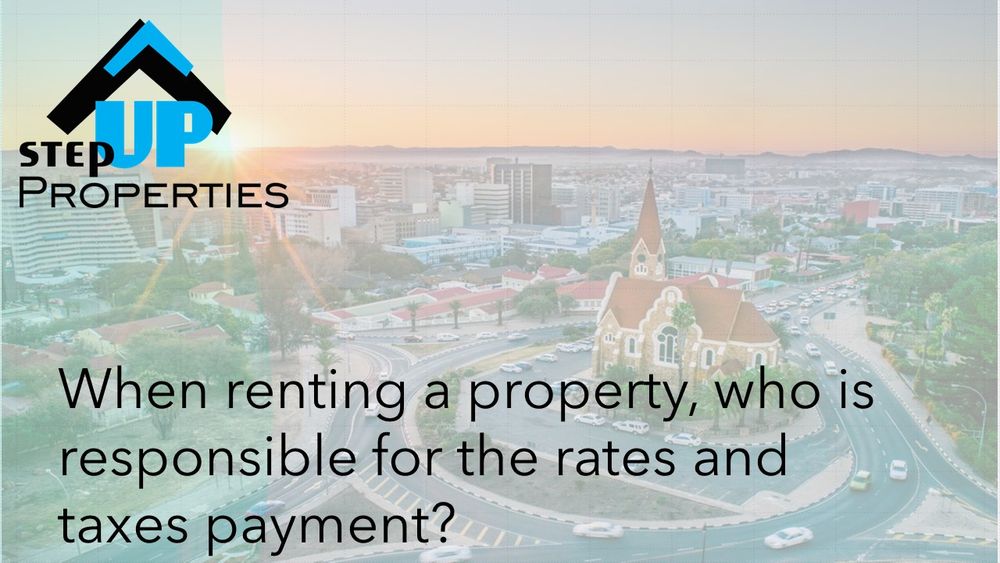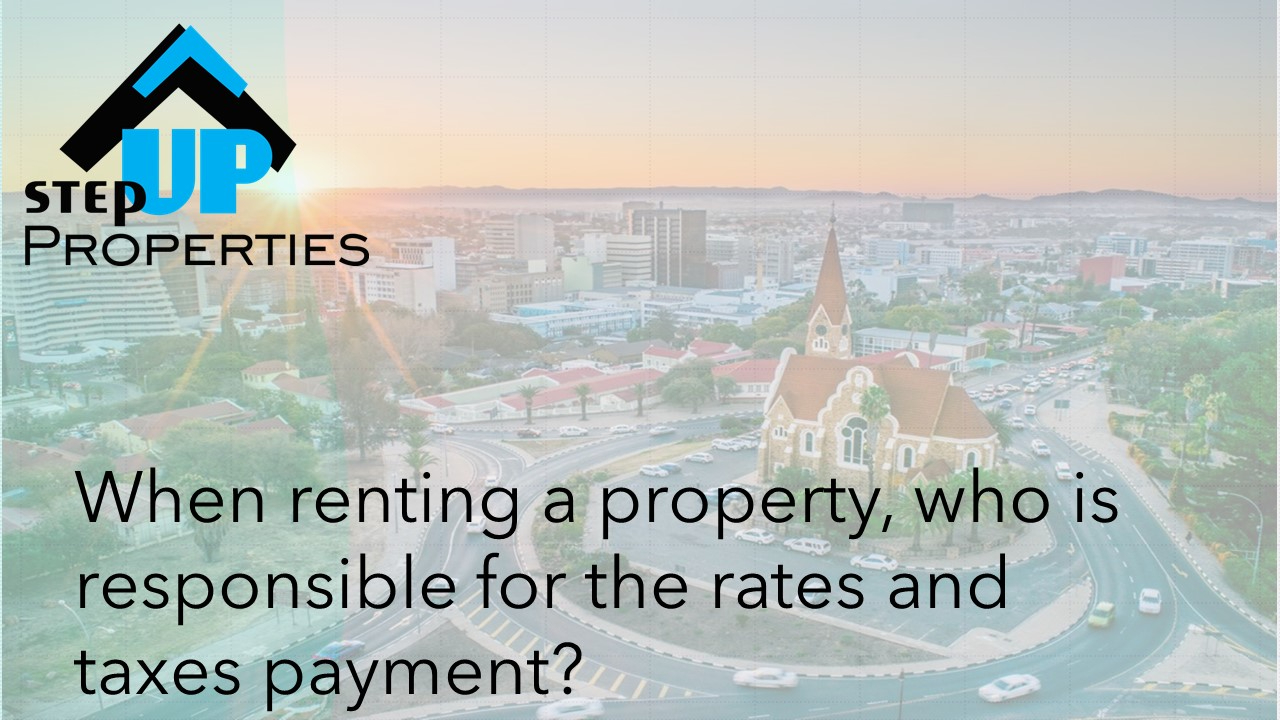| Rates and Taxes Good day
Today's date is quite an interesting one. All zero's and two's - 02/02/2022. Perhaps this date has something special in mind for each of us. Who knows?
But for now, let's get back to business. According to the law, rates and taxes on a property are payable by the owner of the property. There is however a "grey" area when it comes to this.
Should your contract state that the lessee is payable for rates and taxes on the property, the lessee should pay this. It is therefore more a question of what the contract states than a question of who is legally obliged to pay these levies. The terms of this should be clarified and explained (perhaps giving proof of an amount in the form of a latest municipal account) prior to signing such a lease agreement. This should also be done electronically as to avoid being told by the lessee that they never knew, should there be a dispute.
Now, having said that, at the end of the day, should your tenants move out, you as landlord are responsible for the settlement of the account at the municipality. This is the case for both lessees carrying on on your own account or on an account the lessee opened at the start of the lease agreement.
The advice I give all my property owner clients when starting the contract, is to keep the municipal account on your name. My reasons are the following: - In the first place, our municipalities do tend to make mistakes, so if your account is running smoothly, why mess with a good thing?
- It saves time (and a lot of frustration) as the landlord does not need to disconnect and the tenant does not need to connect.
- You, as landlord can keep an eye on the account. I have had so many clients that did not do this and at the end of the day, sometimes when the tenant is long gone, and the owner wants to sell/re-rent the property, there are huge outstanding amounts due to the municipality. As mentioned, the owner will then be liable for payment and in some cases will need legal advice (costing money) to claim the money back from the previous tenants.
It is much easier to generate an invoice for the municipal account monthly, than to fight for payment from a tenant that has already moved on.
An interesting article I read late last year, stated that according to the general property valuation conducted in 2015, there were about 57 000 rateable properties in Windhoek. On the other side, according to a municipal report dated 2018/2019, there were only 54 990 properties in Windhoek. This tells me that there are about 2010 properties that are currently not paying rates and taxes. The municipality collected at least N$ 556 million from the listed properties in 2019. Do you feel that you are getting value for your money spent? You can read the full article here.
|


